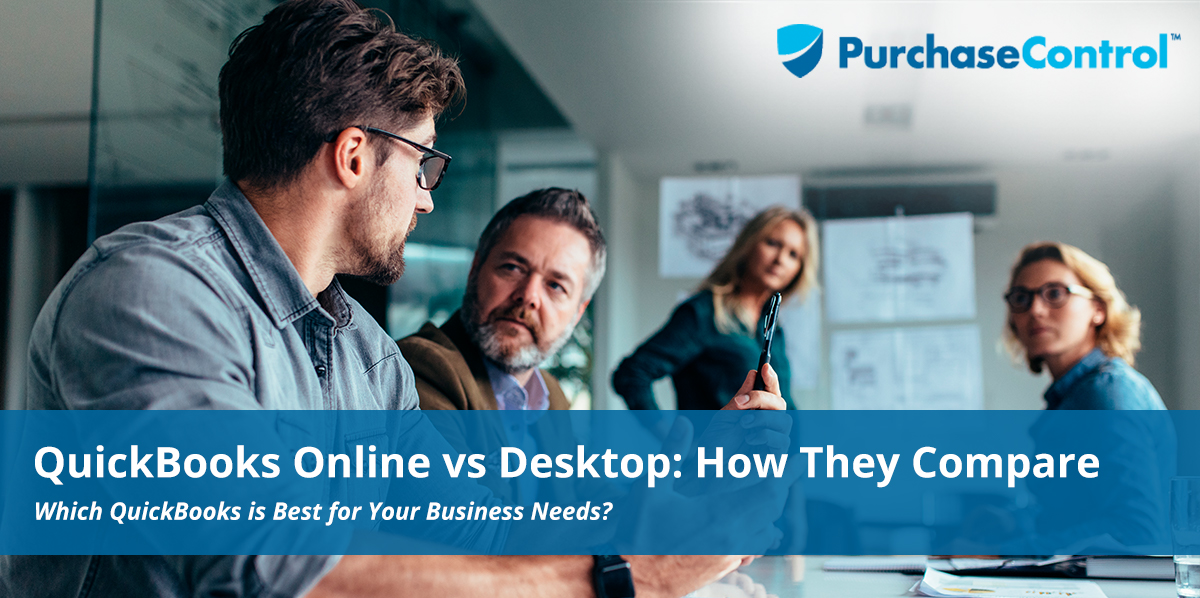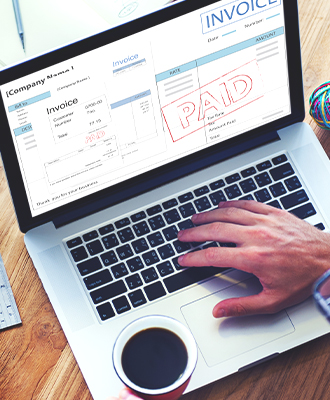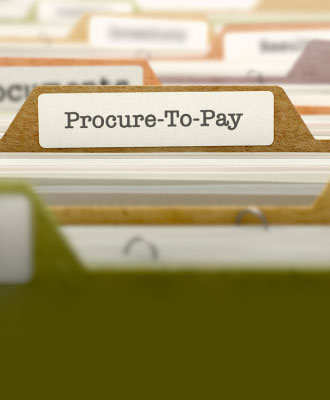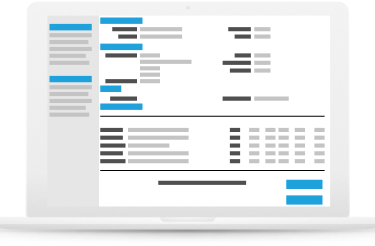If you own a small business, chances are you’ve probably heard about, or even participated in, the debate concerning QuickBooks Online (QB Online) vs. QuickBooks Desktop (QB Desktop) accounting software. Both versions of this popular accounting package offer their respective benefits and challenges. Choosing the right one for your business depends on understanding how each works, the gaps you’ll need to fill, and how well each option meshes with your specific workflows.
Detailed Differences: QuickBooks Online Vs. QuickBooks Desktop
Since its release in the early years of the 21st century, QuickBooks software has come to dominate the financial management space for small and medium businesses, with a total market share of more than 80%. Two of the most popular versions, QuickBooks Online and QuickBooks Desktop, lead the pack.
While both the online version and desktop version give small business owners a set of tools designed to simplify bookkeeping, track sales, perform inventory tracking, and other essentials of small business accounting, they differ in key ways.
QuickBooks Desktop
The original QuickBooks application, released in 2002.
- Requires local installation.
- Initially larger one-off costs
- Comes in several versions, including QuickBooks Pro, QuickBooks Premier, and QuickBooks Enterprise.
- QuickBooks Desktop Pro is the basic version, supporting up to 3 users. It features support for:
- Tracking income and expenses
- Invoicing
- Reports
- Estimates
- Sales tax tracking
- Time tracking
- Inventory tracking
- Support for up to 14,500 items
- Contractor (1099) payments
- QuickBooks Desktop Premier supports up to 5 users and adds forecasting tools and industry-specific features:
- Tracking profitability by product, project, or client
- Progressive billing
- Reporting tools
- QuickBooks Desktop Enterprise adds support for up to 30 users, with role-specific options. It adds:
- Mobile inventory barcode scanning support
- Enhanced reporting, inventory, and pricing tools
- Enhanced pick, pack, and ship support for tracking order fulfillment
- Membership in Intuit’s QuickBooks Priority Circle, which includes advanced support and training options.
- Unlimited customer support and data backups, as well as upgrades to the latest version of the software.
- Offers payroll support in special expanded Gold and Platinum editions.
- QuickBooks Desktop Pro is the basic version, supporting up to 3 users. It features support for:
As of Q1 2020, both QuickBooks Desktop Pro and QuickBooks Desktop Premier have one-time costs of $299.95 and $499.95, respectively. QuickBooks Enterprise has a licensing fee rather than a one-time purchase price. It retails for $1,155/year per license.
QuickBooks Desktop for Mac is functionally identical to QuickBooks Desktop Pro, but supports up to five users and is designed to run in the Apple software environment.
All three versions offer additional upgrades, including:
- “Plus” packages that include unlimited customer support, backups, and software upgrades (included with QuickBooks Enterprise)
- Remote hosting
- Check processing
- Point of Sale (POS) support
- Online payment processing
- Advanced timesheet tracking and management
Regardless of the version chosen, you’ll need to upgrade at least every three years to maintain access to features such as QuickBooks Support and add-ons such as Intuit Payroll and Intuit Merchant Services.
QuickBooks Online
Released in 2004, this version of QuickBooks is leaner and lighter than its desktop sibling. As of 2019, 80% of new QuickBooks users are opting for QuickBooks Online instead of QuickBooks Desktop.
- Cloud-based.
- Ongoing monthly fees per license (30-day trial available)
- Can be accessed from any Internet-enabled device (e.g., laptops, smartphones, tablets, etc.)
- Less robust than QB Desktop, but offers support for more than 300 third-party apps to provide additional features.
- Additionally, has exclusive features not found in QuickBooks Desktop, including:
- Automatic transaction scheduling and submission
- Support for multiple budgets each fiscal year
- Support for attachments through both mobile and desktop devices
- Change tracking through use of an audit log
- Delayed charges and credits for scheduled transactions
- Multiple accounts receivable and accounts payable entry lines in the journal
- Additional labeling options for data parsing and analysis
- Automatic bank transaction sync
- Unlimited time tracking
- Custom banking rules with auto-add bank option
- Support for adding unlimited users with reports-only access
- Support for presentation-friendly reports.
Like QuickBooks Desktop, QuickBooks Online comes in a variety of packages: QuickBooks Essentials, QuickBooks Plus, and QuickBooks Advanced.
QuickBooks Essential is $12/month. It supports up to 3 users and includes:
- Income and expense tracking
- Receipt capture and organization
- Tax deduction optimization
- Invoicing and payment processing
- Basic reports
- Estimates
- Sales orders and sales tax tracking
- Bill management
- Time tracking
QuickBooks Plus is $21/month. It adds support for up to 5 users, as well as inventory tracking, project tracking, and the ability to manage 1099 contractors.
QuickBooks Advanced is $45/month and adds support for up to 25 users, along with:
- Business analytics and insights
- Batch invoicing
- Role-based QuickBooks user access customization
- Advanced technical support from a dedicated account manager
- Online training available on demand
“Whichever version you choose, pairing your preferred version of QuickBooks with PurchaseControl gives you a complete toolset that’s able to handle not just basic financial data, but your entire Procure-to-Pay process.”
Which Version of QuickBooks is Best for Your Business?
Choosing the right version of QuickBooks depends heavily on the purpose and goals of your business, as well as your existing software environment, corporate culture, and any business process management initiatives you may be undertaking.
QuickBooks Desktop is best if you’re:
- A company in one of the industries explicitly supported by QuickBooks Premier (General Business, Contracting, Manufacturing/Wholesale, Professional Services, Retail, and Nonprofit)
- Any business with a strong need for advanced inventory tracking.
- Require support for either the average cost or first-in, first-out (FIFO) methods of inventory management. (QuickBooks Online is limited to FIFO.)
- Require support for batch invoicing.
- Have industry-specific sales, inventory, and reporting needs.
- Are comfortable with additional hardware, software, and support costs that may accompany a localized or remote-hosted installation of the software, managed by your IT staff.
- Have a specific need to control installation and access at the local level for security, compliance, or procedural reasons.
QuickBooks Online is best if you’re:
- A service-based business without the need for advanced inventory tracking.
- Prioritize real-time access from a range of devices.
- Want real-time backups of your data without the need for local manual versions.
- Connect your bookkeeper or accountant with their own QuickBooks user account for remote access, review, and updates.
- Want automatic, real-time software updates so every user always has the latest version of the software.
Filling the Gaps: Getting the Most from QuickBooks
Between upgrades and apps, there’s no shortage of options available with either version of QuickBooks. But to get the best possible return on your investment, it makes sense to consider how you can make QB not just an addition, but an enhancement to your current software environment—particularly your PO system and/or procurement solution.
After all, accounting is just part of a larger financial chain that links all your business units; adding another discrete application without considering the potential value of integration might end up putting a kink in that chain by adding delays (and expense). Disrupted workflows, multiple logins, awkward work-arounds, and other improvisations can make it hard for the folks who need to see, manage, and analyze your financial data to see the whole picture when they’re making crucial business decisions.
A cloud-based, comprehensive procurement solution like PurchaseControl can help you bridge the gap. Integrating seamlessly with both QuickBooks Online and QuickBooks Desktop, PurchaseControl connects your QP data with your AP and procurement workflows in a single click.
Consider the concrete benefits of integrating QuickBooks using PurchaseControl:
Powerful Purchase Order Management
Track and manage spend in real time from any device, anywhere. Manual data entry is greatly reduced, boosting productivity, accuracy, and efficiency. Create custom approval workflows and secure your budgets from maverick spend with integrated vendor catalogs, automatic routing, and intelligent process management with support for contingencies that enforce compliance while preserving a user-friendly experience for your team.
Automatic three-way matching ensures fast and accurate invoice processing that saves you money and helps you capture more discounts.
Cash Flow and Budget Management
Eliminating rogue spend ensures accurate and complete cash flow information, so you won’t be caught without capital when you need it most. Automatically match and manage spend against your budgets and keep your approvers up to date with automatic reports for smarter decision making.
Continuous Process Improvement
Leave paper-based and legacy solutions like Excel behind for good, along with the accompanying headaches. Capture and store all your data in the cloud, for real-time, role-based access that boosts efficiency and productivity, in the office or on the go.
Track, Categorize, and Report Spend Like Never Before
Customize your data fields to present essential data in a clear, user-friendly way. Filter, export, and customize your reports with ease.
Integrated Data, Discrete Access
PurchaseControl gives you control over your data and account access, so you can decide who can access your QuickBooks data (such as a bookkeeper or accountant) while limiting access to your procurement, inventory, and other financial data.
Ready to Hit the (Quick)Books?
Whichever version you choose, pairing your preferred version of QuickBooks with PurchaseControl gives you a complete toolset that’s able to handle not just basic financial data, but your entire Procure-to-Pay process. It’s the optimal way to gather actionable insights, enjoy real savings and value creation from continuous efficiency improvements, and get maximum return on your QuickBooks investment.
PurchaseControl Integrates Seamlessly with QuickBooks for Maximum Performance and Value
Find Out How








